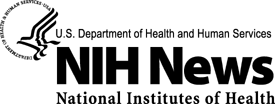|
Oral Insulin Does Not Prevent Type 1 Diabetes
Insulin taken orally does not delay or prevent type 1 diabetes in people at moderate risk (25 to 50 percent likelihood) of developing type 1 diabetes in 5 years, researchers reported today at the annual meeting of the American Diabetes Association. The finding emerged from the second trial conducted as part of the Diabetes Prevention Trial-Type 1 (DPT-1), which ended last month. The other DPT-1 trial, completed two years ago, found that low-dose insulin injections failed to prevent or delay type 1 diabetes in people at high risk (50 percent or greater chance) of developing the disease in 5 years.
A total of 372 people took part in the trial comparing the rate of progression to type 1 diabetes among those randomized to take a daily capsule of insulin crystals (7.5 mg.) or a placebo consisting of a harmless, inactive substance. All participants had a 25 to 50 percent chance of developing type 1 diabetes in the next 5 years, a calculation based on genetic, immunologic, and metabolic tests done before enrollment. Upon joining the trial, which began in 1996, all subjects were making normal amounts of their own insulin. Their ages ranged from 3 to 45 years old, with a median age of 10 years.
After an average of 4.3 years of observation, about 35 percent of people developed type 1 diabetes in each group. The annual rate of onset (7.2 percent per year) was nearly the same in both groups. Testing done as part of the study detected most cases of diabetes before symptoms developed, enabling patients to get prompt, early treatment. No side effects were linked to oral insulin.
“This result is very disappointing, but it’s important to remember that negative findings also provide important scientific answers,” said study chair Dr. Jay Skyler of the University of Miami. “We’ve learned a great deal from both DPT-1 trials about the natural history of type 1 diabetes and the immune events that underlie it, and that knowledge is crucial to future prevention efforts.” Although oral insulin did not prevent or delay diabetes, the study confirmed and expanded on the observations made in the low-dose insulin injection trial that the risk of developing diabetes can be predicted by subjects’ characteristics and laboratory tests performed during screening.
The oral insulin study was based on the hypothesis that insulin taken orally might suppress the immune system’s destructive attack on beta cells. Studies in the non-obese diabetic (NOD) mouse, an animal model of type 1 diabetes, had shown that oral insulin given before diabetes development could reduce or delay onset of the disease. By “feeding” a person insulin, the immune cells in the digestive tract might learn to recognize insulin in a different way and favor the development of immune responses that delay the onset or progression of diabetes or prevent its occurrence altogether.
The oral insulin trial is the third large study that failed to prevent type 1 diabetes in at-risk people. The European Nicotinamide Diabetes Intervention Trial (ENDIT) also failed to prevent or delay type 1 diabetes with nicotinamide, a vitamin present in small amounts in a normal diet.
“The findings of these trials underscore how much we still have to learn about the underlying immune events that lead to type 1 diabetes,” said Dr. Judith Fradkin, director of the Division of Diabetes, Endocrinology, and Metabolic Diseases in the National Institute of Diabetes and Digestive and Kidney Diseases (NIDDK). “We plan to closely follow people at risk to try to understand the disease better and to find ways to stop the complex autoimmune process that leads to type 1 diabetes. We will also be testing approaches to preserve the ability to make insulin in people with newly diagnosed type 1 diabetes.”
Upcoming clinical trials will be conducted under Type 1 Diabetes TrialNet, a collaborative network of clinical centers dedicated to preventing type 1 diabetes and preserving insulin production in new-onset patients. The first trials are scheduled to begin enrolling patients in the fall of 2003.
About 17 million people in the United States have diabetes, the most common cause of blindness, kidney failure, and amputations in adults and a major cause of heart disease and stroke. About 1 million have type 1 diabetes. Formerly known as juvenile onset or insulin-dependent diabetes, type 1 diabetes usually begins in children and adults under age 30. It develops when the body’s immune system attacks the insulin-producing cells of the pancreas.
The DPT-1 trials were funded by the NIDDK, the National Institute of Allergy and Infectious Diseases, the National Institute of Child Health and Human Development, and the National Center for Research Resources, all parts of the National Institutes of Health under the Department of Health and Human Services, as well as the American Diabetes Association and the Juvenile Diabetes Research Foundation International.
| 
